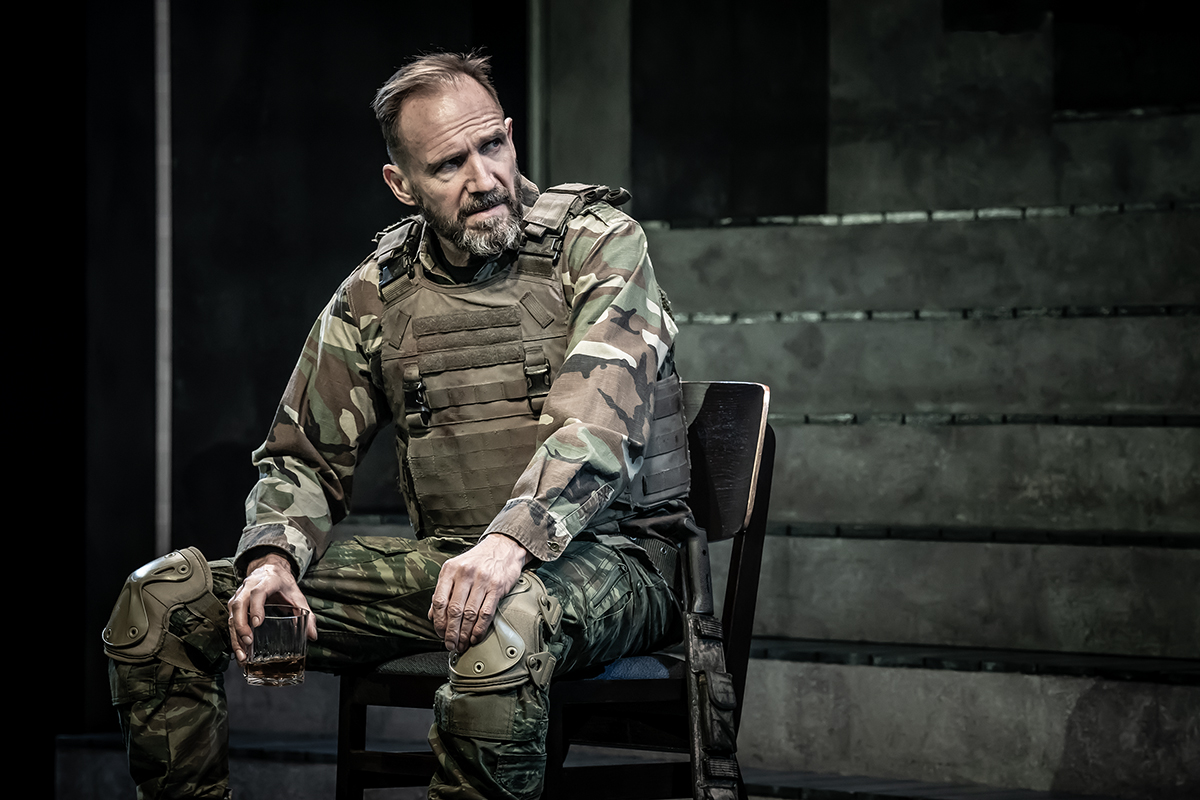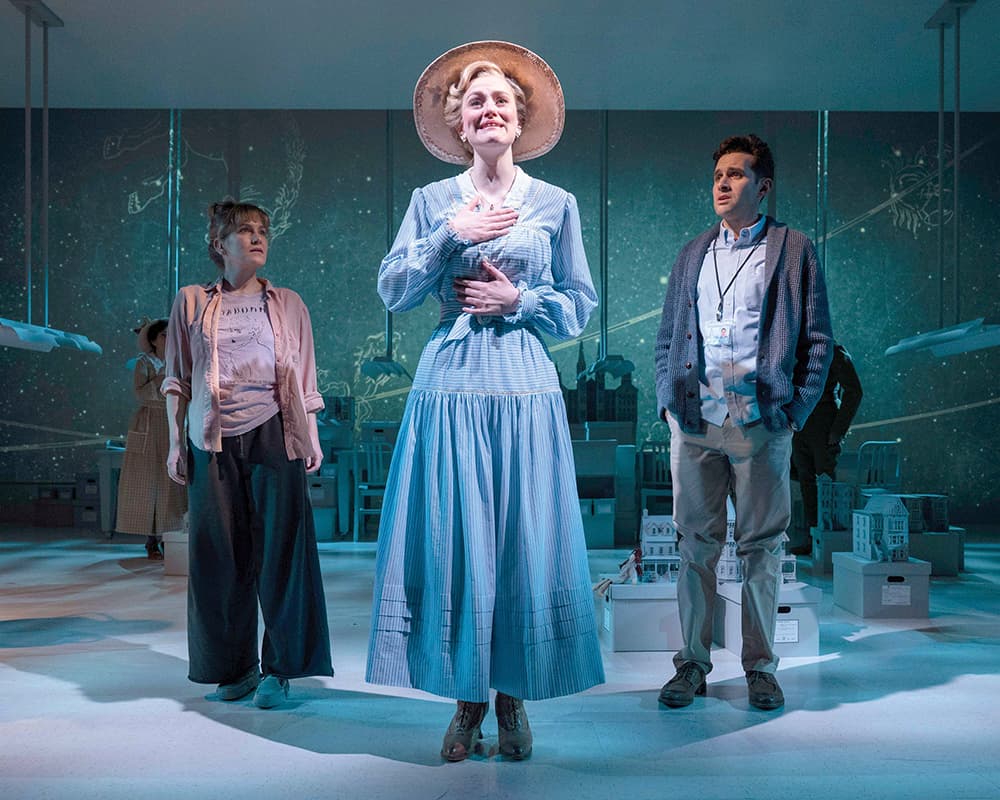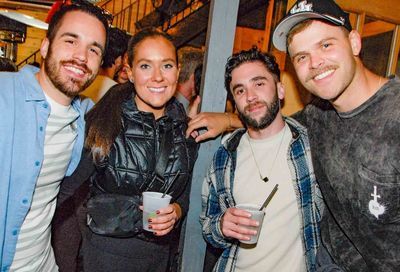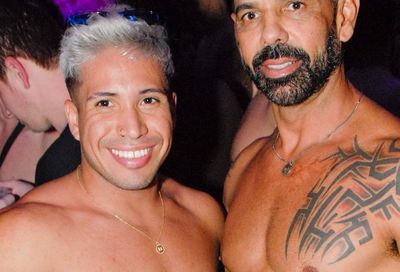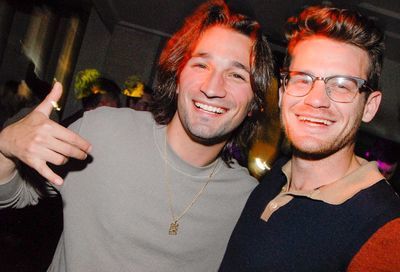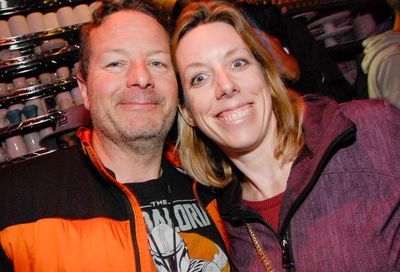On Tap
Maurice Hines toasts his late brother Gregory and other stars who helped him move through a life in the limelight
Maurice Hines doesn’t remember how old he was when he first performed as a tap dancer on The Tonight Show Starring Johnny Carson alongside his brother Gregory and his father, Maurice Sr.
”I never go by age. Age is just a number, so I never really talk about age,” Hines says. ”But it was around 1961. I was still in high school, I think.”
By that point, the New York-native Hines had already made his Broadway debut: He appeared with his brother in the forgotten 1954 musical The Girl In Pink Tights, with choreography by Agnes de Mille (Oklahoma!). Though ”the Hines kids” had already performed at The Apollo Theater, ”I had never seen all these dancers, and all the singers — it was a bigger show,” he says. ”And I’ve loved it ever since. I love going to the theater, I love the immediacy of it.”
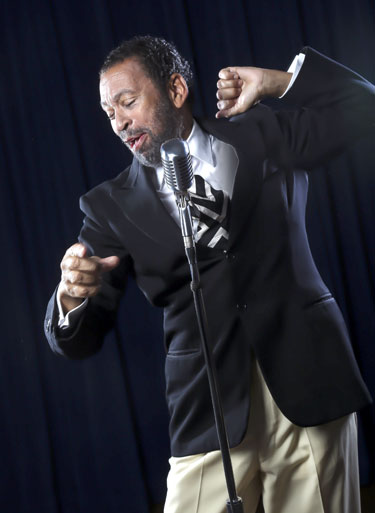
Maurice Hines: Tappin’ Thru Life
(Photo by Tony Powell)
In recent years Hines has worked on various shows paying tribute to pioneering African-American entertainers, including several at Arena Stage and MetroStage, where he’s set to direct and choreograph his Ella Fitzgerald bio-musical, Ella, First Lady of Song, starting in January. (It’s a follow-up of sorts to his Josephine Baker-focused show, Josephine Tonight, presented at that Alexandria venue in 2012.) But right now, the pioneer in the spotlight is Hines himself, with his new autobiographical show, Maurice Hines Is Tappin’ Thru Life. Hines developed the show, directed by Jeff Calhoun (Newsies) in a production starting at Arena Stage next week, chiefly as a way to pay tribute to his late brother, who died 10 years ago.
The show’s title reflects the kick-start that tap dancing gave Harlem-based Hines in show business. At the encouragement of an uncle, Hines’s mother took her oldest son to see a neighborhood dance instructor, who immediately signed him up for classes. ”I did seven pirouettes at 5 years old,” Hines recalls, joking, ”I might need to drop down to six now, but I can still do my pirouettes.”
A song-and-dance man for half a century now, Hines credits his success to the many great artists he and his brother worked with during their formative years. He also credits ”the great, great pioneering men that don’t get enough due” for first allowing black artists to shine on the small screen, from Ed Sullivan to Merv Griffin to most significantly Johnny Carson, who had Hines, Hines & Dad — featuring papa Hines as drummer and sidekick — on several dozen times.
”If it wasn’t for Johnny Carson, we wouldn’t have the career that we have,” Hines says matter-of-factly. ”After we did all those shows, we had every main room in the world.”
METRO WEEKLY: How did you come up with the idea for this show to begin with?
MAURICE HINES: I happened to be reading an article on tap, and they didn’t mention my brother’s name! And I said, well, that’s very wrong, because Gregory even went to Washington and got National Tap Dance Day [enacted by Congress in 1989], besides being the great tap dancer that he is. I got upset. So I said, I got to do something about this. How soon they forget, because he had recently passed away, I think a year before.
The act I was doing before, I would just start talking about Gregory, ’cause I wanted to feel his presence with me. And it evolved from there. I did some shows in Florida, in Boca Raton, and added some pictures that my mother had. And the audience loved it! I did a little longer version in Boston. And Jeff Calhoun came up there, and he said, ”This is spectacular. The audience loves it, and they love the story.” I tell stories about Gregory and I working with Judy Garland and Ella Fitzgerald and Frank Sinatra — all these great people. So Jeff has evolved it into something even bigger. So that’s really how it all started. It’s as simple as that. Just me making sure that people don’t forget my brother.
MW: So you share memories you have of working and hanging out with famous and important people, many from when you were just a toddler or young adult over a half-century ago. You must have an exceptional memory to be able to do that.
HINES: Well, a lot of the memories I tell in the show, I don’t want to reveal them too much, because they were very important and I want the audience to hear them for the first time from the stage. But the one I really love is the one on Judy Garland. Because when we met her, we didn’t really meet her until she actually walked on the stage. We did a number with her, but her choreographer did the number standing in for her [in rehearsal]. We said, ”Will we ever meet Ms. Garland before we do the number?” And he said, ”No. She doesn’t rehearse. She’ll just come on.” And so, when Gregory and I did the number, she just jumped on the stage. She said, ”Hi, I’m Judy Garland!” And I said, ”Hey, Judy, I’m Maurice. This is my brother Gregory.” And then we did the number. And she just fell in love with us, because we were so – you know, we were so natural. Nothing frightened us. We had been doing it since we were little kids. Even though it was Judy Garland — we were thrilled to meet her – we knew what we were supposed to do professionally. And she was the ultimate professional. We had a great time with her.
MW: Do you keep a diary? How do you remember all the details?
HINES: No, no, I never kept a diary. All the stuff that I talk about in the show I remember. My brother always said that I have the best memory – which I do. I remember every little detail.
MW: How old were you when you actually started?
HINES: I was 5 and Gregory was 3.
MW: And you’re telling me that you absolutely remember details of things that happened to you when you were that young?
HINES: Yes I remember, sure. I remember teaching Gregory to tap. I remember when we first started. I remember our first show at the Winter Garden Theatre in the Bronx. And of course my mother kept all these wonderful pictures of us, and so that always triggers memories. And that’s in the show also. We have a lot of pictures of us when we were little and we were starting out. And pictures of us with Ella Fitzgerald, and people like that. Nat King Cole. Meeting Frank Sinatra and Dean Martin.
We think [stars] today are great, but believe me, when you meet Sinatra — actually meet Sinatra – and you meet Judy Garland, and you work with Ella Fitzgerald, and you know Lena Horne…. These kids don’t come close to them. [Laughs.] They might be good for today, but when you actually meet those greats, it’s beyond anything you ever imagined. It’s sort of like they really were special. A gift from God — he had just touched them. He really had. And they’re the reason I’m on the stage, because I learned from them.
MW: You’re saying today’s stars are not as talented?
HINES: No. There are a few. I think Gladys Knight said it best. She was on The Queen Latifah Show, and she happened to mention Sammy Davis Jr. People know the name, but if you never saw Sammy at his peak, no one could do what he did. There’s nobody around that could ever do all of that. Nobody! And she mentioned that. She said, ”I was very lucky to play in Las Vegas with the Pips and be around the Sammy Davises and the Lena Hornes.” No, these kids, they don’t come close. Michael Jackson, yes. But Michael also studied Sammy Davis Jr. He saw Sammy. Once you see that greatness, it makes you try to come up to that.
The only one I think — and I see her as part of that generation — is Tina Turner. Tina Turner is spectacular. Beyoncé is okay. But she ain’t no Tina Turner! I mean when you see Tina Turner, it’s a different story. And even Beyoncé will tell you that. Beyoncé’s a talented girl, but there’ll never be another Tina. And Aretha [Franklin] — those women could sing, baby. They didn’t lip-sync songs. They sing ’em.
MW: So there’s nobody new that you would say even comes close to the greats of previous generations?
HINES: No. One of my great idols, Harry Belafonte, he was unbelievable live. He would walk out on the stage and get a standing ovation before he opened his mouth! You don’t see that today. I was there! I saw it! Instant rapport. I’ve seen all the tricks and the pyrotechnics they do, but I don’t see [natural ability].
I think one of today’s great voices is Oleta Adams. Do you hear her records? Do you see her? No. Anita Baker is not even recording. One of the great voices! What do we have now, when you think about it, compared to those girls?
MW: We have Adele.
HINES: [Silence.]
MW: Also, Bruno Mars. He doesn’t do much for you?
HINES: Yes, he does, actually. I bought his CD. I do like him. I think he’s an original. There are some singers today. I’m not talking about that so much. I’m talking about this thing when you’re onstage. Ella Fitzgerald said, ”If you can’t do it with just a piano, get out the business.” She didn’t need all the things blowing up, and all that. James Brown did all that stuff. James Brown was a great performer, so they didn’t need hit records. Tina said, ”I don’t need hit records. I have an audience in Europe. I’ll sell out arenas, stadiums! I don’t have to have a hit record every time I open my mouth.” Those are great performers. People know they’re going to get a great show.
One I think is a wonderful artist is Bruce Springsteen. Fabulous! Gifted people. That’s what I’m about. I think you find a lot in the theater, though. They’re more in the theater. Because we have to learn our craft. We can’t lip-sync. We got to do eight shows a week. So the theater artists, like Audra McDonald, Norm Lewis, Brian Stokes Mitchell – we’re doing eight shows a week. We can’t be jiving out there. So the theater people I always have great respect for. You can do a concert, and then you’re off for four or five days. Not in the theater, baby! You got a matinee on Wednesday. You better be singing.
You know who I love, speaking of new? I love Lady Gaga. Because underneath all that she can really play piano, and she can really sing. And you know who her idol is, don’t you? She said it on the HBO special she did from Madison Square Garden. Her idol was in the audience, and she wanted to make sure they knew it wasn’t Madonna, see. I was surprised, too. She said, ‘I was in musical theater in college and my idol is sitting in the audience right now. It’s Liza Minnelli.’ And Liza Minnelli stood up. Right away I knew, by watching Lady Gaga, I said this girl is not just no little frivolous thing here. She has a base, and the base is talent, and her idol was Liza Minnelli. Who was, of course, at her peak, spectacular.
MW: Although a lot of Lady Gaga’s success is due to shock value.
HINES: Well, she’s smart. She said, ”Listen. I don’t have Aretha Franklin’s sound. I don’t have a rock voice.” She probably said, ”They ain’t going to listen to me unless I come out and do crap freaky things, and then I can do my performance art thing. But I got to get them first. Now how do I get them? Madonna set the template, although Madonna don’t have no voice. I got a voice, so I’ll come out in a meat dress, and then they’ll listen to my music. And I’ve got interesting things to say, but they’ll never hear it if I don’t get their attention.” Smart! Smart! She’s living in show business today. That’s why I’m a huge fan of hers. Because she’s not just an entertainer, she’s a smart woman. And she was right. They wouldn’t take her just singing straight-ahead at the piano, like she does in the middle of her act. She sits at her piano and plays a wonderful ballad. She sings her ass off.
MW: On the topic of theater, do you have any concerns about the high price of tickets to Broadway relative to the old days?
HINES: Yes. Oh, yes! I was very vocal about it when it first happened. I think they made it an elitist thing to do. It’s very disheartening for me. Very disheartening. That’s why I like doing regionals, because the ticket prices are lower. Certainly I get paid less, though naturally I want to get paid more like anybody else. But I do regionals because it opens up a venue for people to come see the show. And that’s what you want. You want them to come see the show. So I do it.
MW: You’re still working occasionally on Broadway though?
HINES: Oh, yeah. They want this to come to Broadway. But I like touring. I’ve always liked it. I like being on the road. But I like being on the road because the ticket prices are still cheaper than Broadway.
MW: How long have you had this strong connection, this bond with D.C. theater?
Support Metro Weekly’s Journalism
These are challenging times for news organizations. And yet it’s crucial we stay active and provide vital resources and information to both our local readers and the world. So won’t you please take a moment and consider supporting Metro Weekly with a membership? For as little as $5 a month, you can help ensure Metro Weekly magazine and MetroWeekly.com remain free, viable resources as we provide the best, most diverse, culturally-resonant LGBTQ coverage in both the D.C. region and around the world. Memberships come with exclusive perks and discounts, your own personal digital delivery of each week’s magazine (and an archive), access to our Member's Lounge when it launches this fall, and exclusive members-only items like Metro Weekly Membership Mugs and Tote Bags! Check out all our membership levels here and please join us today!




